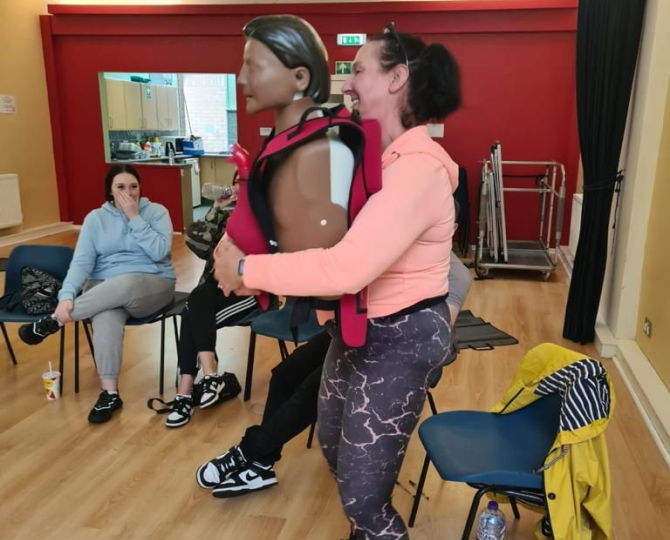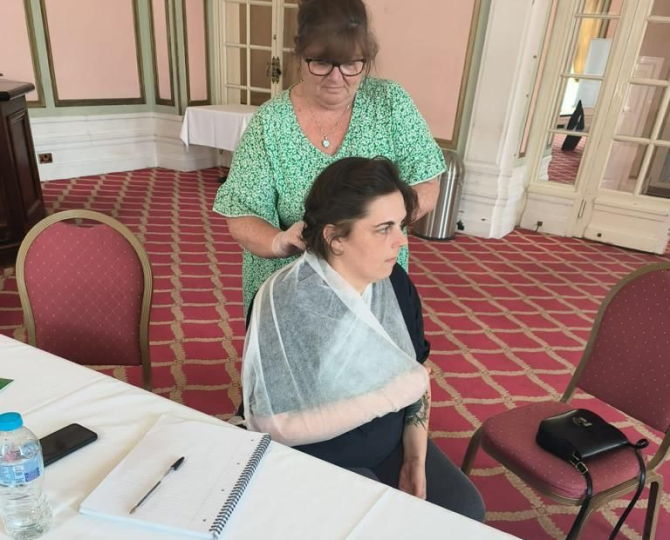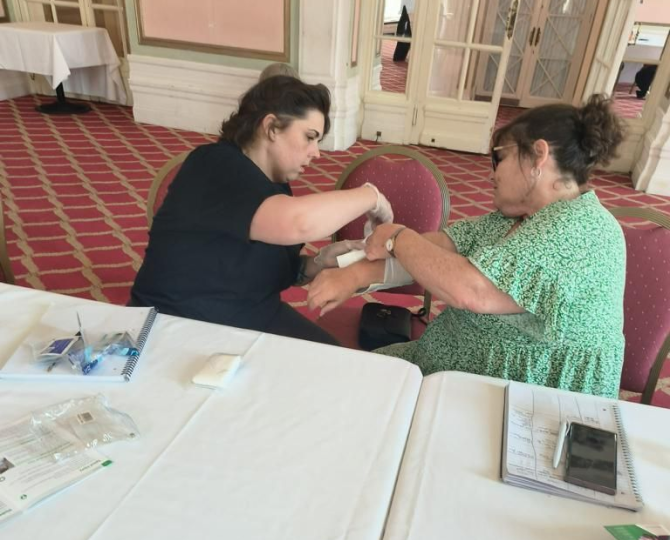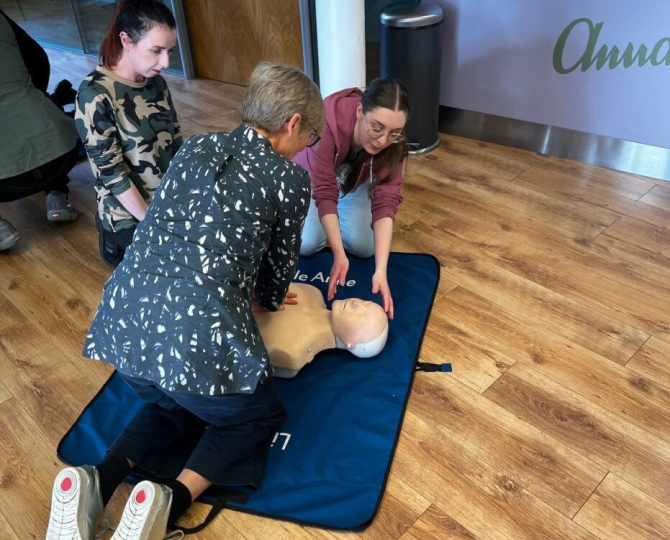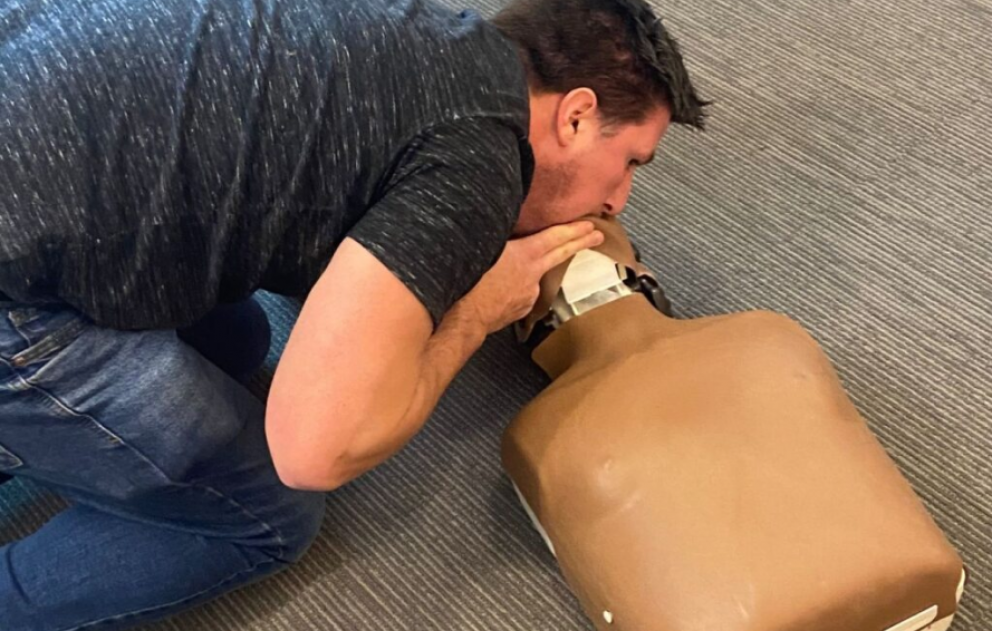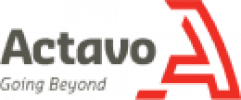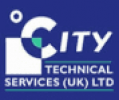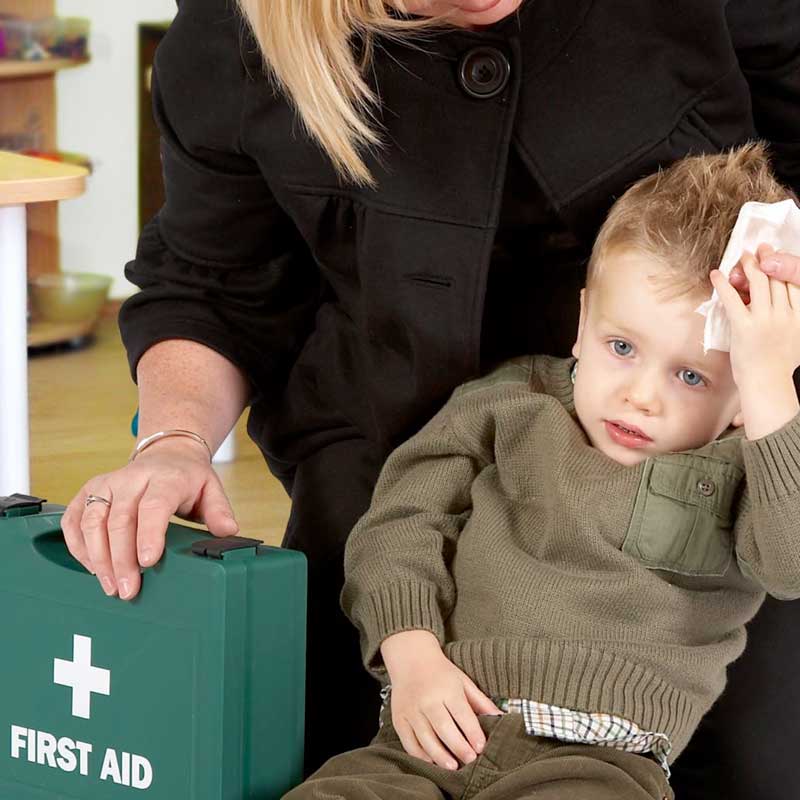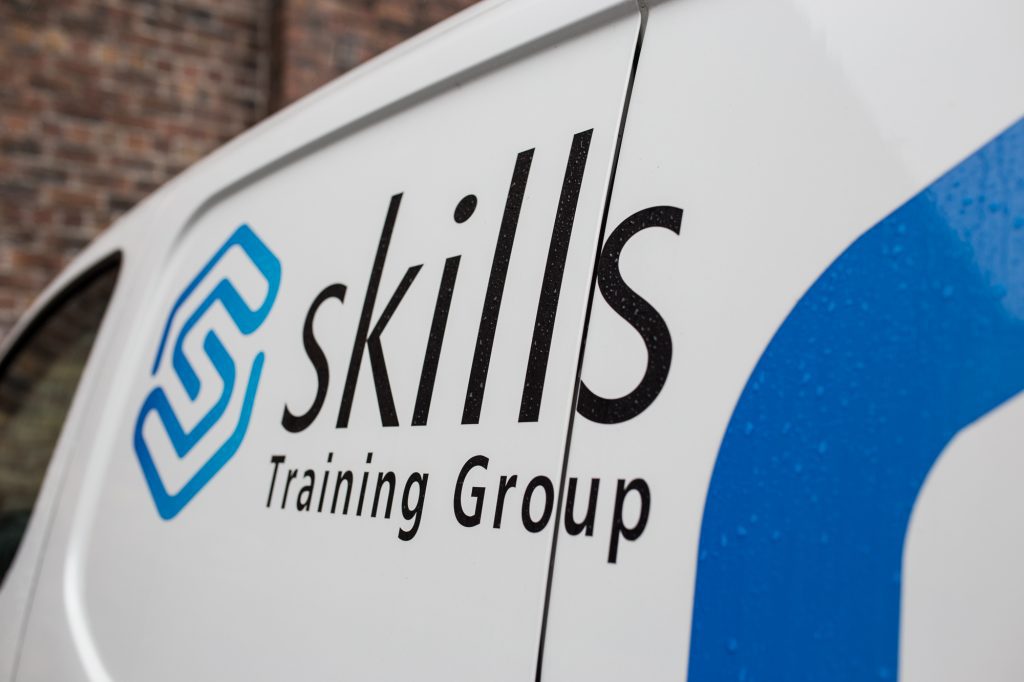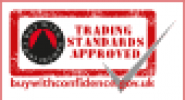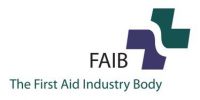Our 12 Hour Paediatric First Aid course is made up of 6 hours of hands-on training and 6 hours of at-home online learning. Our eLearning curriculum, which is web-based, interactive, and user-friendly, must be completed prior to the practical day. Learners may access the course materials as many times as they want via a computer/laptop/tabvar or phone. The classroom training session lasts for 6 hours and is delivered by a trainer who will teach you the skills, knowledge, and confidence to respond effectively when pediatric emergencies occur.
EYFS 2021 Update – Blended First Aid meets full guidance.
The Department of Education recognises Blended First Aid in the New EYFS Framework, which will come into effect on September 1st 2021, and that you may rest confident that Skills Training Group meets all of the requirements.
This blended course includes all components of the Emergency Paediatric Course, with a trainer-led practical day and our eLearning module containing only the additional material needed to acquire your Full Paediatric First Aid Certification.
 and accredited by
and accredited by 


